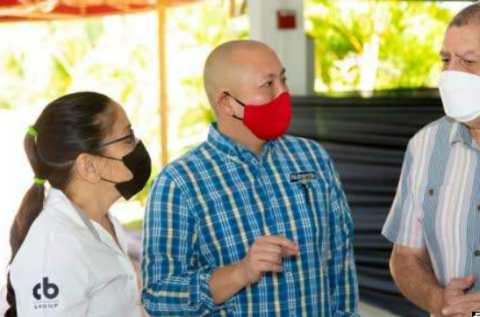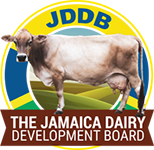
Jamaica's beef and dairy industry has got a big boost with the official launch of the National Livestock Genetic Improvement and Breeding Technology Programme, which seeks to improve the gene pool for cattle.
The programme, which is seen as a potential game changer leading to the expansion of the livestock industry — with the expectation of reducing Jamaica's importation of beef and milk — is being supported by Newport Limited, manufacturers of Nutramix animal feeds.
Newport Limited, a division of the CB Group, has signed a three-year contract with the Jamaica Dairy Development Board (JDDB) to support the programme.
The initiative, which was welcomed by Minister of Agriculture and Fisheries Audley Shaw, will see Nutramix providing over 1,500 inseminations to the local dairy industry and more than 500 inseminations to improve the local beef industry. The move to distribute improved genetics to dairy and beef farmers across the island is to improve the gene pool of breeds like Jamaica Red Poll and Jamaica Hope.
These two breeds not only have historical relevance but are also the mainstay of economic activities in the beef and dairy industry.
Led by the JDDB, the programme was initiated by the Ministry of Agriculture and Fisheries as one of three spear-points to improve the production of beef and dairy, the other ones being Nutrition and Herd Management.
This public-private initiative also aims to increase milk production within the country and to improve the efficiencies in the beef industry.
Jamaica imports roughly US$86 million worth of products across beef, goat, and milk. The National Livestock Genetic Improvement and Breeding Technology Programme is in support of import substitution, as it will allow the creation of conditions that will enable Jamaica to reduce the importation of these products over time.
The CB Group, one of Jamaica's biggest agricultural conglomerates, is partnering in this programme given that it is in line with its goal of creating sustainable industries, where farmers, businesses and consumers all benefit.
Chief executive officer at CB Group Matthew Lyn believes this initiative comes at an opportune time, as the proven proficiency and technology exist to facilitate this move.
“Nutramix's Livestock Support Unit is certified and experienced in breeding technologies like artificial insemination and embryo transfer,” Lyn said. “This, coupled with their partnership with overseas suppliers of quality semen and embryos for cattle and small ruminants, positions Nutramix to be the best provider of the expertise and resources to achieve the ministry's goals.”
For her part, senior manager livestock support at Nutramix Dr Gabrielle Young explained the positive impact of artificial insemination and embryo transfer to Jamaican livestock agriculture.
“I am really excited about this launch. It has been a long time since we've been working on this programme to introduce these proven technologies,” Dr Young said.
He sought to explain the reason for going this option. “Some may ask, why we would use this instead of using the conventional method of using bulls, bucks or rams. The biggest advantage is that in using embryo transfer and artificial insemination you would be using superior genetics and introduce new valuable traits into our local livestock,” he said. “This would allow us to emphasise genetic values such as fertility, longevity, calving ease and production improvement.”
He stated that the technology can even be used to select the gender of the offspring, adding that semen is also relatively inexpensive.
“Some of the bulls or rams that we would use for breeding are valued at between US$25,000 and US$50,000 and some bulls are even as costly as US$100,000. For this reason, it is way more cost-effective to buy their semen. That semen will cost anywhere between US$10 and US$100, a fraction of the cost,” Dr Young said.
A major benefit is that it is also disease free. The semen is tested and shipped in liquid nitrogen, which is very safe and results in virtually no chance of diseases.
For his part, Minister Shaw lauded the potential and innovation of the initiative stating, “I am really pleased to be a part of the launch of the National Livestock Genetics programme. It has the potential to be a game changer that will lead to the expansion of the livestock industry, which we need now more than ever. I certainly commend the JDDB for embracing the vision of increasing production in the livestock sector to grow the sector.”
He commended the CB Group and Dr. Young for supporting this initiative by providing the vital semen and embryos, saying the ministry looks forward to their expertise and technology that will aid in the success of the programme.
Nutramix and the JDDB are already partners on the Drink Real Milk campaign, a 10-year initiative to improve milk consumption and increase production.
Chairman of the JDDB Dr. Derrick Deslandes pointed out that the partners have a long-standing history of collaborating to create improvement and sustainability within these industries.
He shared some of the lessons learnt from the dairy industry over the years. The JDDB chairman stated, “from the data gathered, we recognise that there are a number of issues that are critical. It reveals that there are a host of conditions that we need to improve over time. First, we have to improve the genetics of the animals that we have been working with over time, because right now our animals are not as productive as we want them to be.”
The second lesson from the experience, he identified, “is the need to improve the management of the farms because that's a critical piece of the puzzle that the farmers are not looking at. We are developing a knowledge database to guide farmers in terms of how they manage the herd and to encourage new investments into the sector. And third, we need to look at how we can improve feed and nutrition for these animals”.
Source: Jamaica Observer.
https://www.jamaicaobserver.com/business-observer/another-attempt-to-boost-beef-and-dairy-industry_237078?profile=&template=PrinterVersion

